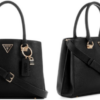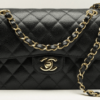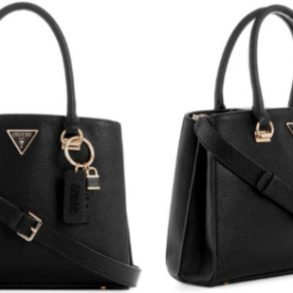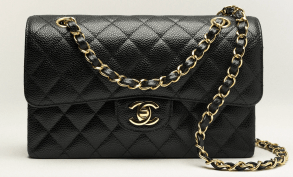
Microlender Dolla Financial Services Limited made a profit of $419 million at year ending December, bettering the previous year’s performance by 50 per cent as more customers offered up their luxury possessions as collateral for new loans.
“The business of asset-based lending has proven to be a rewarding one for the Dolla group, as evidenced in the performance of Ultra Financier,” said Dolla Chairman Ryan Reid following the release of the company’s audited report on Tuesday. “We grew the loan book at Ultra from zero to $900 million in 12 months,” he said.
Ultra Financier, which offers loans against a raft of luxury items, was launched by Dolla to specifically target high net worth clients. The move was unusual for a microfinancing company in a sector that mainly targets salaried workers and micro and small businesses for loans.
Dolla Financial, which is led by CEO Kenroy Kerr, does microlending in Jamaica and Guyana under the Dolla brand. It offers loans of up to $2 million that are usually collateralised with household equipment, cars or real estate, with payment preferred via salary deduction.
Meanwhile, Ultra Financier, which is led by David Henriques, lends anywhere from $500,000 to $150 million to customers, with loans issued in as little as two days. Customers can pledge luxury watches and handbags above $150,000, cars, jewellery, stocks and bonds, real estate, and yachts, according to the company’s online asset list.
“The Ultra accepted brands include but are not limited to Louis Vuitton, Dior, Yves Saint Laurent, Prada, Chanel, Gucci, Givenchy, Goyard, Celine, Hermes, and many more,” read the list of luxury handbags. A separate list outlines permissible watches. “We accept a wide range of luxury watches as collateral, from the latest contemporary styles to classic pieces. Brands we accept include Rolex, Audemars Piguet, Hublot, Cartier, Patek Phillipe, and more,” the company said.
The typical loan amount will total half the value of the luxury items pledged. Interest rates charged was not quickly found on the company’s site. This product, however, appeals to customers who are asset-rich but cash-poor; persons who may have exhausted traditional banking options for loans.
During the year, Dolla’s group revenue grew 58 per cent to $1.2 billion, from $740 million a year earlier. The group’s operating expenses, at $535 million, grew 58 per cent, which was in line with sales, sending most of the gain in revenue to the bottom line.
For the year, profit rose from $280 million to $419 million.
Ultra accounted for one-quarter of the sales and also profit, a performance that showcased the company’s “sales initiatives” and demand for asset-based borrowing, according to Reid. In the previous year, Ultra contributed 3.3 per cent of group profit, having come to market in November 2022. The company is fully owned by Dolla Financial. Dolla in turn is controlled by First Rock Group.
In a breakdown of the 2023 earnings, the primary contributor to the group’s performance was Dolla’s operation in Jamaica which earned $297.5 million, up from $243 million a year earlier; Ultra Financier followed with $116.5 million, up from $9.6 million; then the Guyana operation, which underperformed the prior year, its contribution having fallen from $28 million to $5.1 million.
Dolla Guyana Inc will cease operations next year, a decision the board made in February.
“The board declared its intention to wind down the operations of Dolla Guyana Inc, a wholly owned subsidiary of Dolla Financial,” the company said in its earnings report.
“The decision is due to the current geopolitical uncertainty and the reallocation of resources to Jamaica where returns exceeded those in Guyana,” it said.
The operation is to wind down by March 2025. That’s when management expects to receive the final payment on its outstanding customer loans.
Dolla Financial’s loan portfolio closed the year at $2.5 billion, up 42 per cent. Its secured loans were four-fifths of the portfolio.
Reid said the group’s collateralised loan strategy has effectively preserved the quality of its loan portfolio, with non-performing loans remaining stable at 8.2 per cent, while expected credit losses was cut from $30 million to $15 million.
The company holds $3 billion in assets comprised mainly of customer loans. The group’s net value, or shareholder equity, spiked by 36 per cent to $981 million.
________
UPDATE: This story has been updated to include new information on Dolla Guyana.
This post was originally published on this site be sure to check out more of their content.








